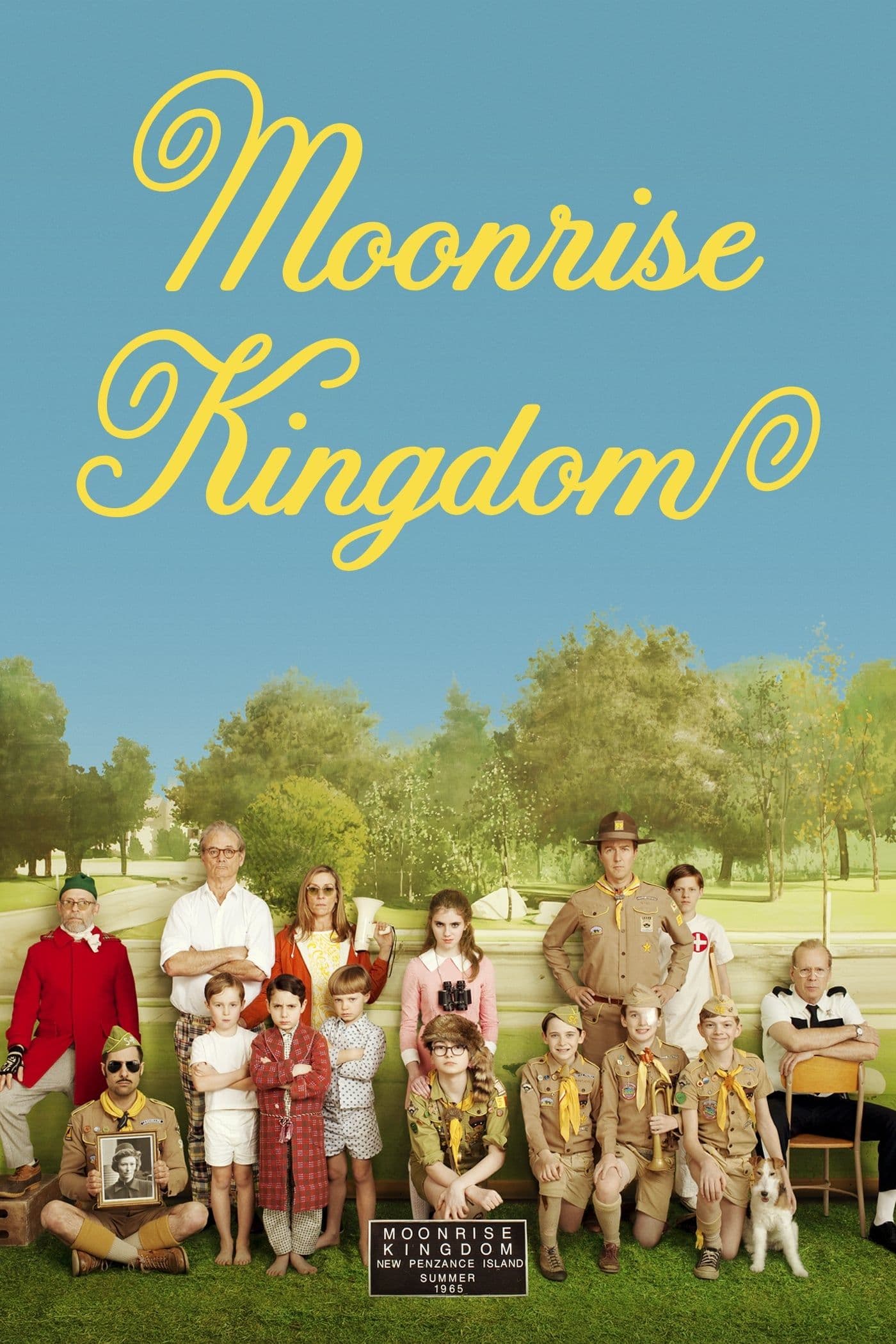
Moonrise Kingdom
2012
Rate this movie
Average: 0.00 / 5
(0 votes)
Director
Wes Anderson is a refined aesthete, proponent of a cinema capable of enchanting with an architecture woven with irony, lightness, and soft symmetry. His is a directorial style that manifests as a true authorial signature, a meticulously constructed diegetic universe, almost like an animated diorama or an elaborate tableau vivant, where every frame is a Flemish painting of precision and every transition a clockwork mechanism. This is not mere stylistic exercise, but a profound expressive choice that elevates the narrative, transforming it into a modern fairy tale.
Each of his works is molded upon a model of stylistic perfection towards which the director strives and conforms with rigid formalism. This maniacal coherence, far from being a limitation, becomes the keystone for a total, almost hypnotic immersion into his world. Anderson does not merely tell stories; he creates parallel dimensions, palpable yet dreamlike, where the most authentic emotions are hidden behind a veneer of impeccable, sometimes surreal, composure. His is a cinema that celebrates meticulousness, detail that becomes essence, and symmetry which, while evoking an almost divine order, does not hesitate to dialogue with the emotional chaos of the characters.
This delightful Moonrise Kingdom is no exception, a delicate love story of two adolescents set on a remote New England island, fitting perfectly into the Andersonian canon of "fugitives in search of belonging." The choice of 1965 is not accidental: a transitional year, precursor to the great cultural revolutions, yet still imbued with a certain American innocence, a period when adventure and discovery could still flourish far from digital screens and hyper-connectivity. New Penzance Island, fictional and isolated, thus becomes the ideal stage for a miniature odyssey, a microcosm of archetypes where the rules of the adult world are distorted and overturned.
It is 1965, on New Penzance Island. Sam Shakusky is at a Khaki Scouts camp, a fictitious organization very similar to Baden Powell's Boy Scouts, an institution that Anderson deconstructs and reconstructs with his sharp irony, highlighting its naive formalism and limited effectiveness in the face of an irrepressible desire for freedom and love.
During the night in his tent, young Sam escapes by cutting a hole in the tent where he was sleeping, taking provisions and equipment with him and disappearing without a trace. This seemingly simple gesture is a manifesto of independence, a declaration of war against conformism and abandonment. Sam, an orphan tormented by a sense of estrangement, is the embodiment of the young rebel who does not ask permission to exist, but molds his own reality with an almost maniacal determination, defying conventions with a precision worthy of his creator.
Thus begins a mobilization to find the fugitive, involving the head of the Khaki Scouts, Scout Master Ward (an impeccable Edward Norton, who balances authority with an almost childlike vulnerability), who feels terribly guilty; the island's police chief, Captain Sharp (an unusually subdued but deeply empathetic Bruce Willis); and the parents of Suzy, Sam's thirteen-year-old friend, who has joined him in this elopement. The ensemble of adults, with their neuroses and clumsiness, creates a comical but touching counterpoint to the seriousness of the two children's mission, revealing how often it is the adults who are more lost than their charges.
The two, after marching through woods, fording rivers, avoiding pursuers, and climbing mountains, set up camp on a small beach located in a remote part of the island, exchanging dreams and plans. Their march through the wilderness is a contemporary reinterpretation of the great 19th-century adventure novels, where the vastness of the landscape enhances the intimacy of the bond. Each stage of their journey is an ode to discovery, complicity, and the strength of an innocence that the world, despite its ugliness, has not managed to corrupt.
Theirs is a small enchantment that merges with the throbbing of the sea, with the trembling of the stars, with the gentle warmth of the first kiss. A moment of perfect suspension, where childhood, even if ephemeral, reveals itself in all its existential grandeur. It is here that Anderson demonstrates his mastery in rendering the purest feelings epic, embedding them in a tableau of unparalleled visual and sonic beauty.
The following morning, the two are found and returned to the civilized world: for Sam, who is an orphan and rejected by his foster parents, the sad fate of being placed with social services looms. Raw reality breaks in, threatening to shatter the fragile idyll, with the system attempting to swallow the exception, to normalize the anomaly. The theme of orphanhood, or more broadly of emotional isolation within the family, is a leitmotif in Anderson's work, from The Royal Tenenbaums to The Grand Budapest Hotel, and here it finds one of its most moving expressions.
But a cataclysm violently striking the island shuffles the cards once again, and Sam and Suzy are able to fulfill their love dream after a thousand trials. The hurricane, a true biblical storm, acts as a capricious and magnificent deus ex machina, not only as a narrative tool for resolution, but as a visual metaphor for the inner turmoil that the characters, both children and adults, face. It is nature itself that, with its primordial force, restores destinies to a more spontaneous and less conventional order.
The two children are truly enchanting characters: Sam is a small explorer of Nature, his love for Suzy is crystalline and pure, rooted in a pragmatism that stems from his difficult life experience. He is a miniature Robinson Crusoe, capable of building shelters and strategies with almost scientific precision, but with a heart that beats for an uncontaminated emotion.
Suzy is a little artist who feels oppressed by a family that doesn't care for her and sees in Sam the first person genuinely interested in her. Her rebellion manifests through her fantastic books, her binoculars with which she observes the world from a critical distance, and her capacity for self-narration. In Sam, she finds not only a accomplice, but a mirror of her own sensibility, a refuge from loneliness and her parents' misunderstanding—parental figures portrayed by Bill Murray and Frances McDormand with a blend of detachment and repressed affection that is typically Andersonian.
Surrounding the two young lovers is an ensemble of characters poised between the grotesque and the hyperbolic, in perfect Wes Anderson style. The entire gallery of adults, from the caring but awkward scout master to the lonely policeman, and even the icy social worker (a Tilda Swinton with an almost alien presence), contributes to building a world where extravagance is the norm, yet each character, in their excess, reveals a surprising and touching humanity. Their imperfections become the necessary counterpoint to the pure perfection of the feeling between Sam and Suzy.
Many memorable scenes dot this small gem; perhaps the one that lingers long in the heart is precisely the first kiss scene between the two young lovers: the two children dance by the sea to the sound of a small turntable placed on the beach in the foreground; Sam and Suzy are at the center of the frame, to the right a yellow suitcase, to the left an old green lamp, all in dazzling symmetry. The use of Françoise Hardy's music, with its delicate melancholy, amplifies the sensation of a moment stolen from time.
Sam dances like all boys, uncoordinated and out of sync; Suzy sways gracefully to the rhythm of an old French song, then their mouths meet, and for a moment everything seems to stop, everything seems to become subordinate to that kiss. This scene, a concentration of visual poetry and emotional authenticity, is the perfect distillation of Anderson's cinema: an impeccable image, meticulously studied in every detail, that succeeds in capturing the essence of a universal feeling, fragile and powerful, transforming it into a moment of eternal splendor. It is the triumph of youth, love, and adventure, framed by the magic of a director who has made singularity his art.
Main Actors
Country
Gallery
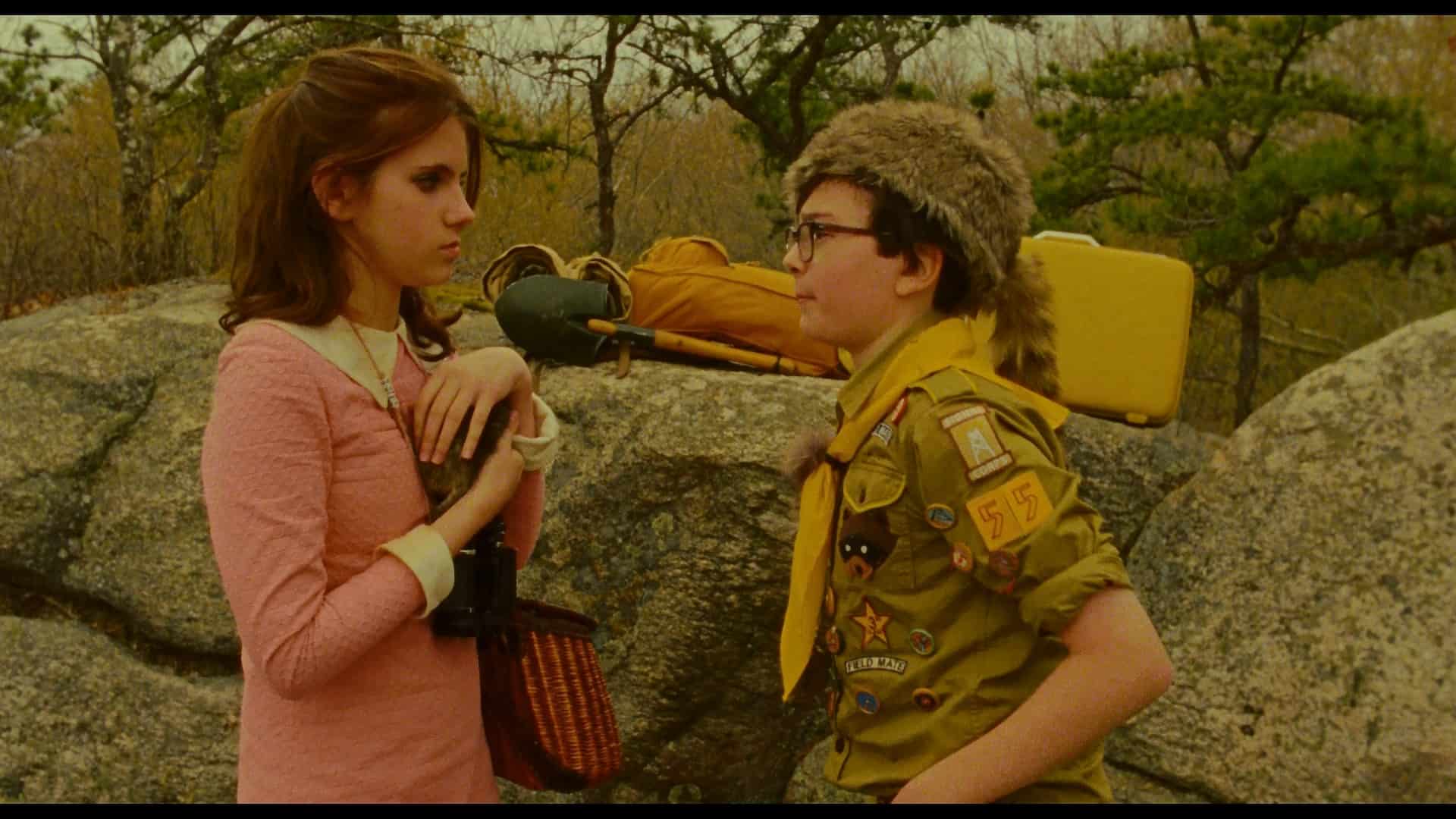

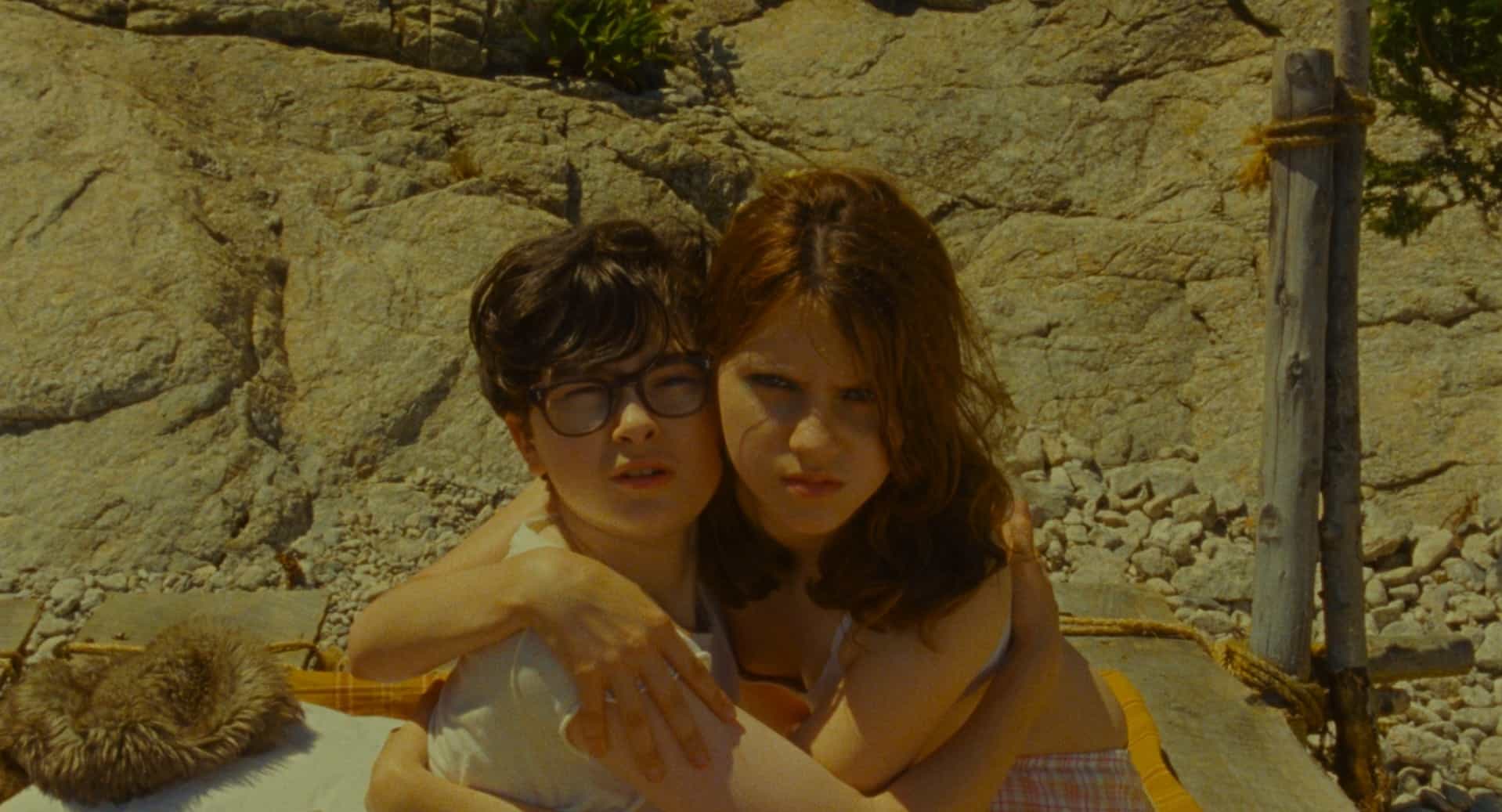
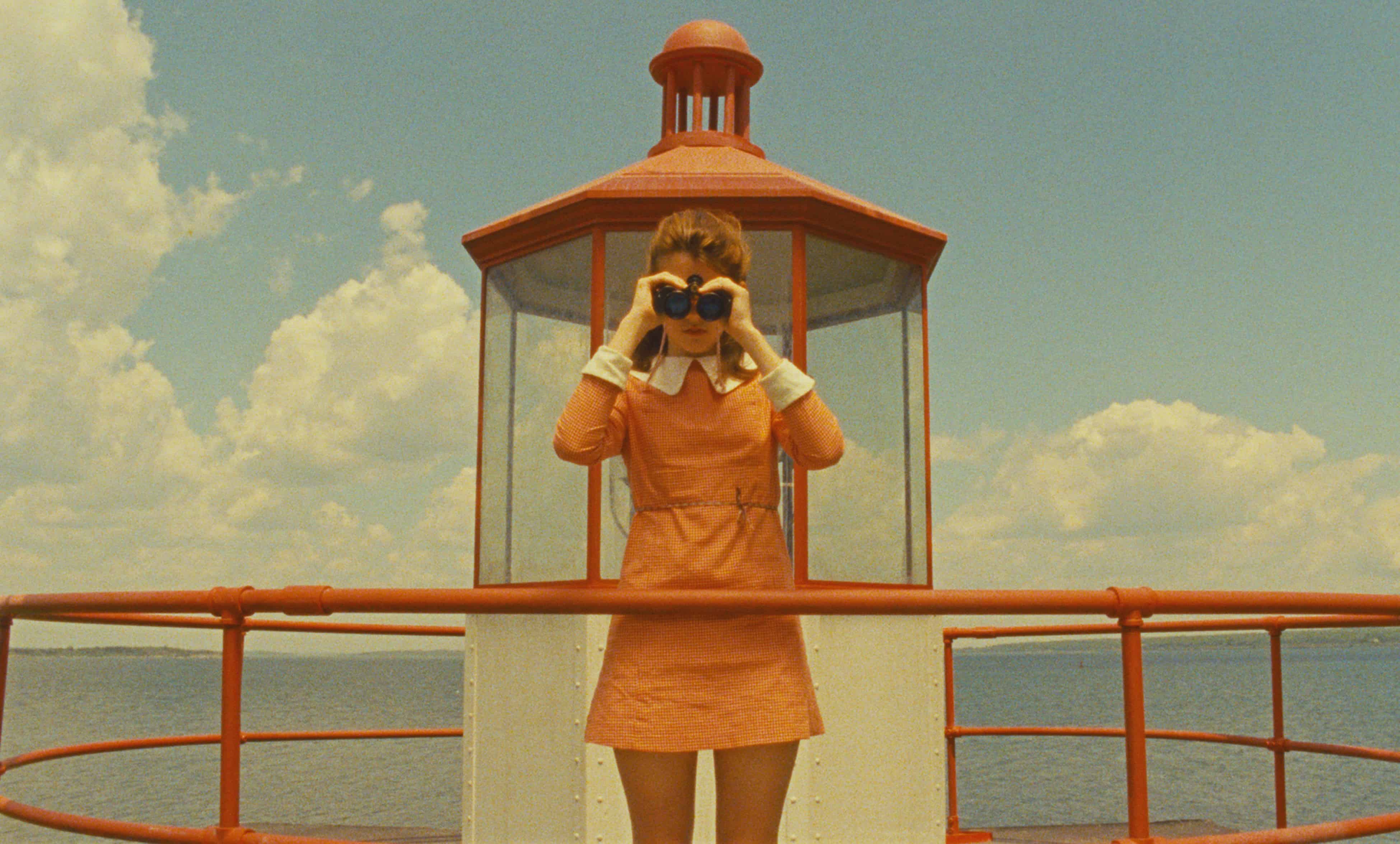
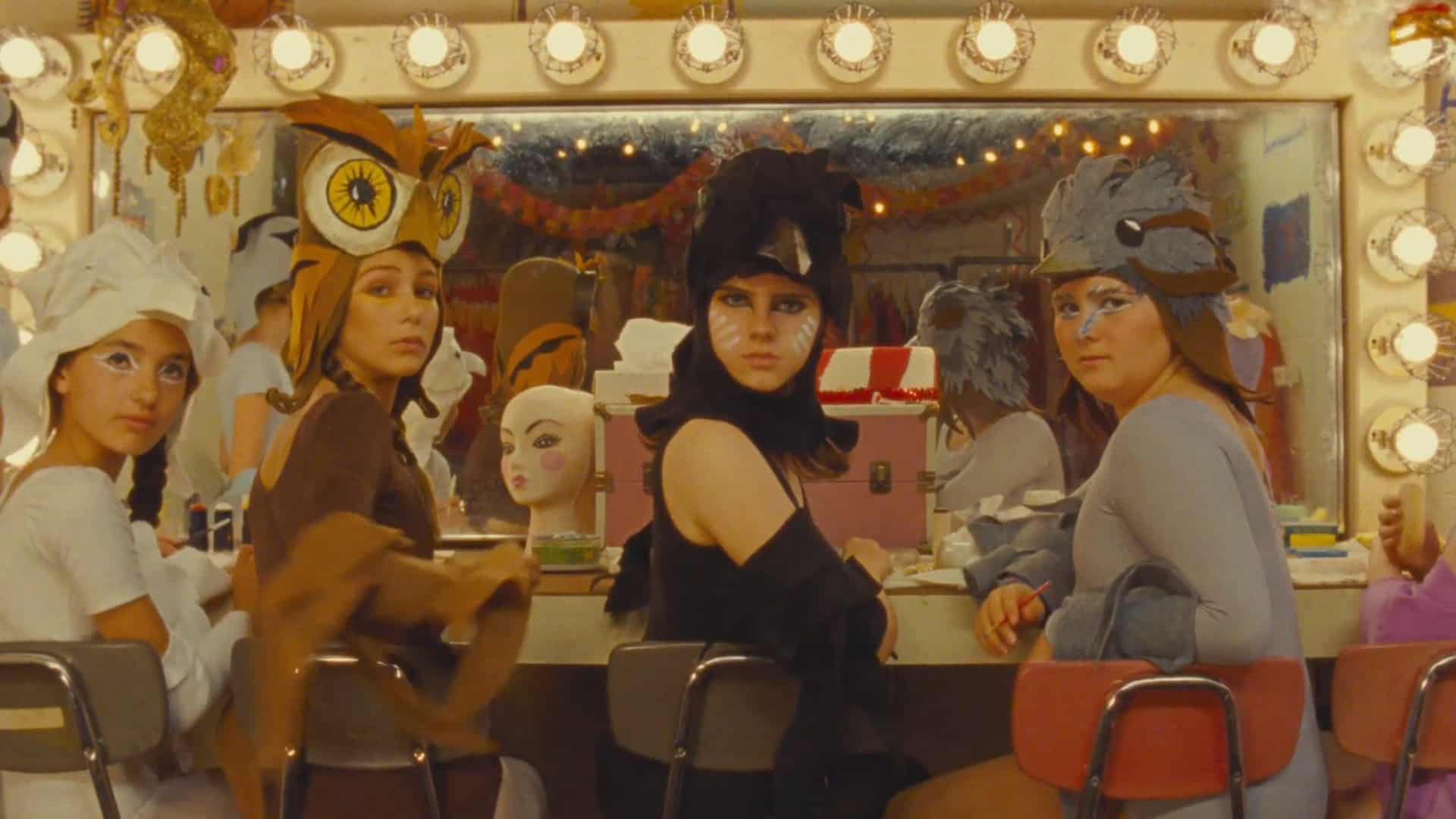



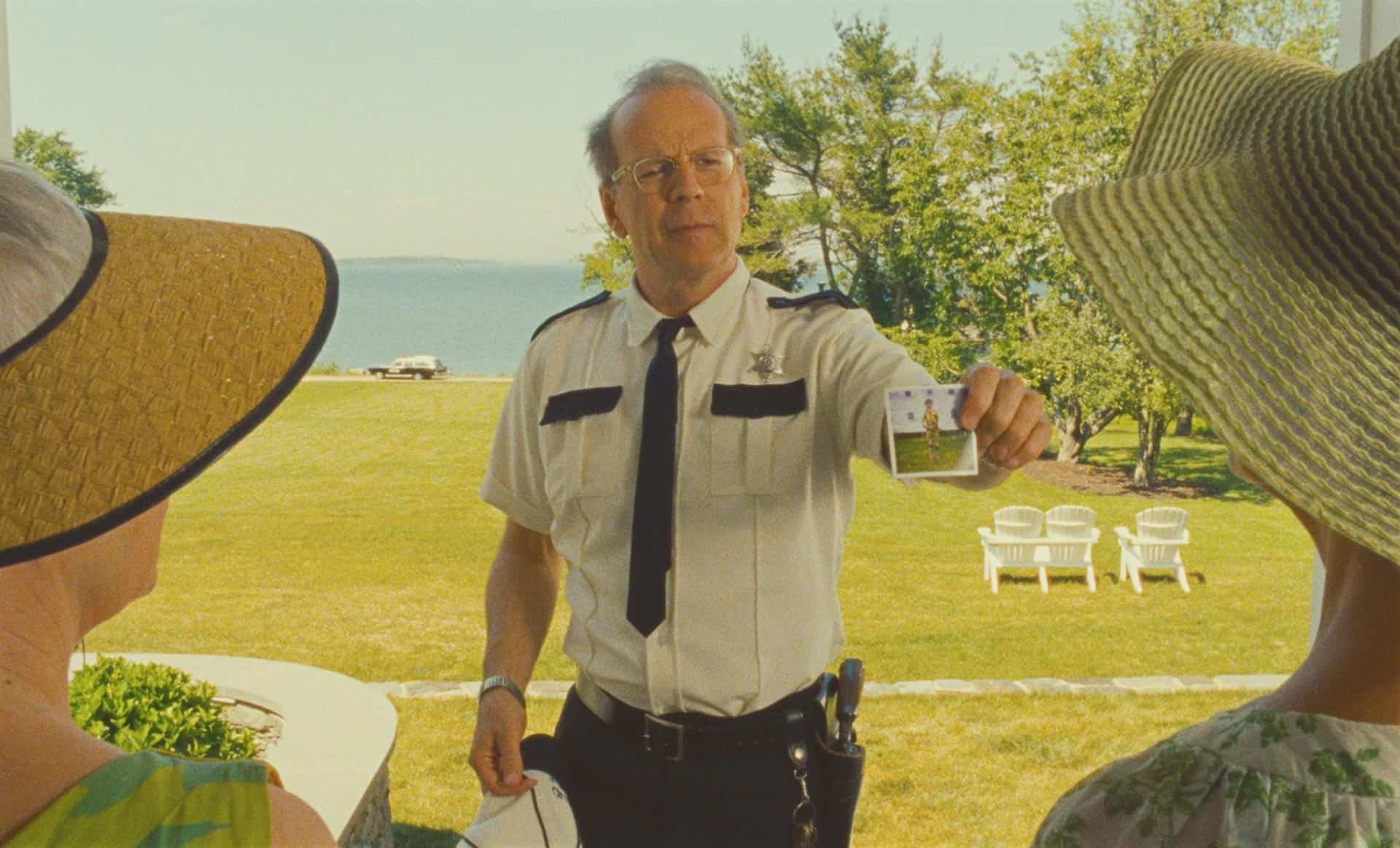
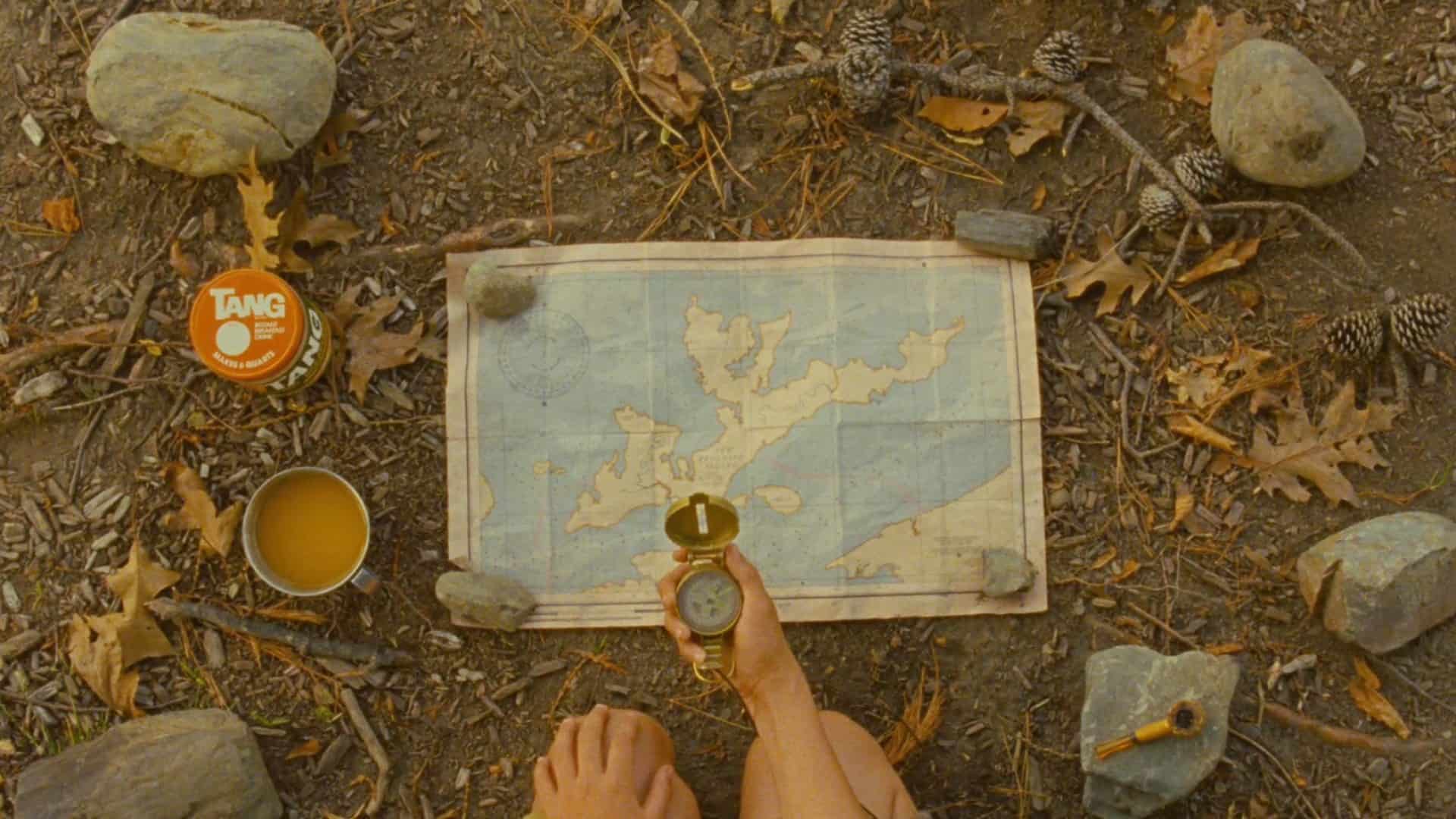
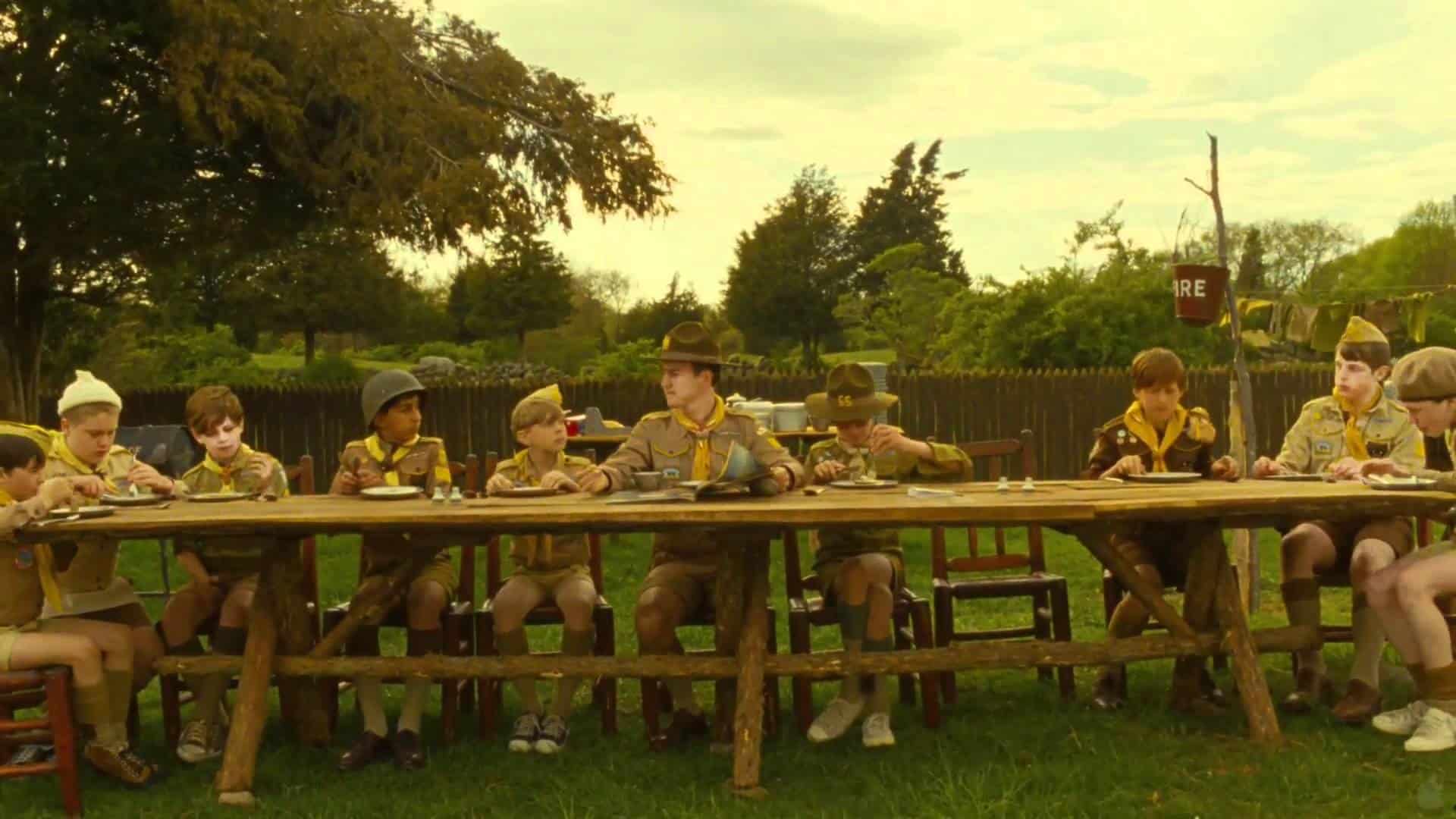



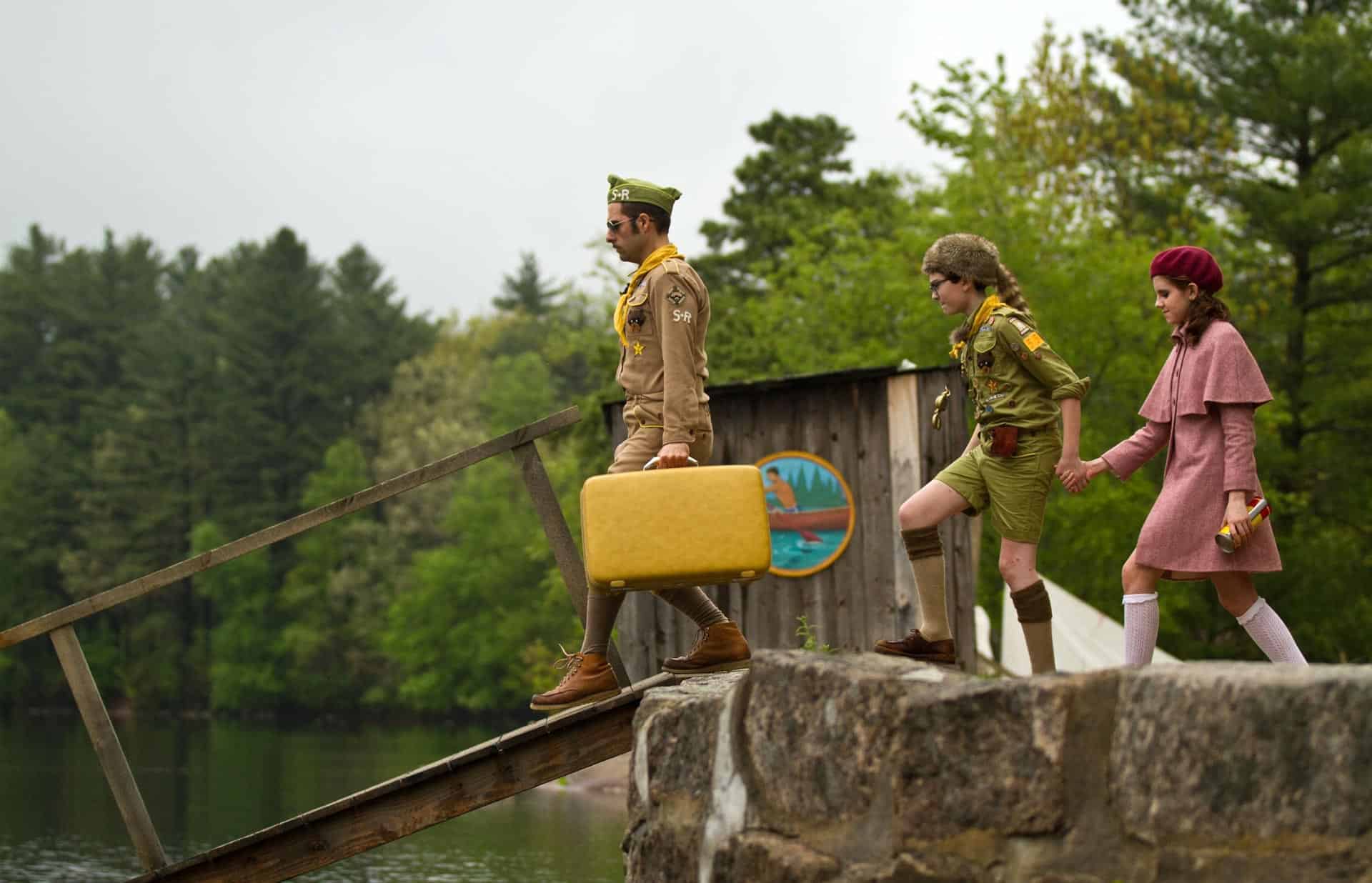
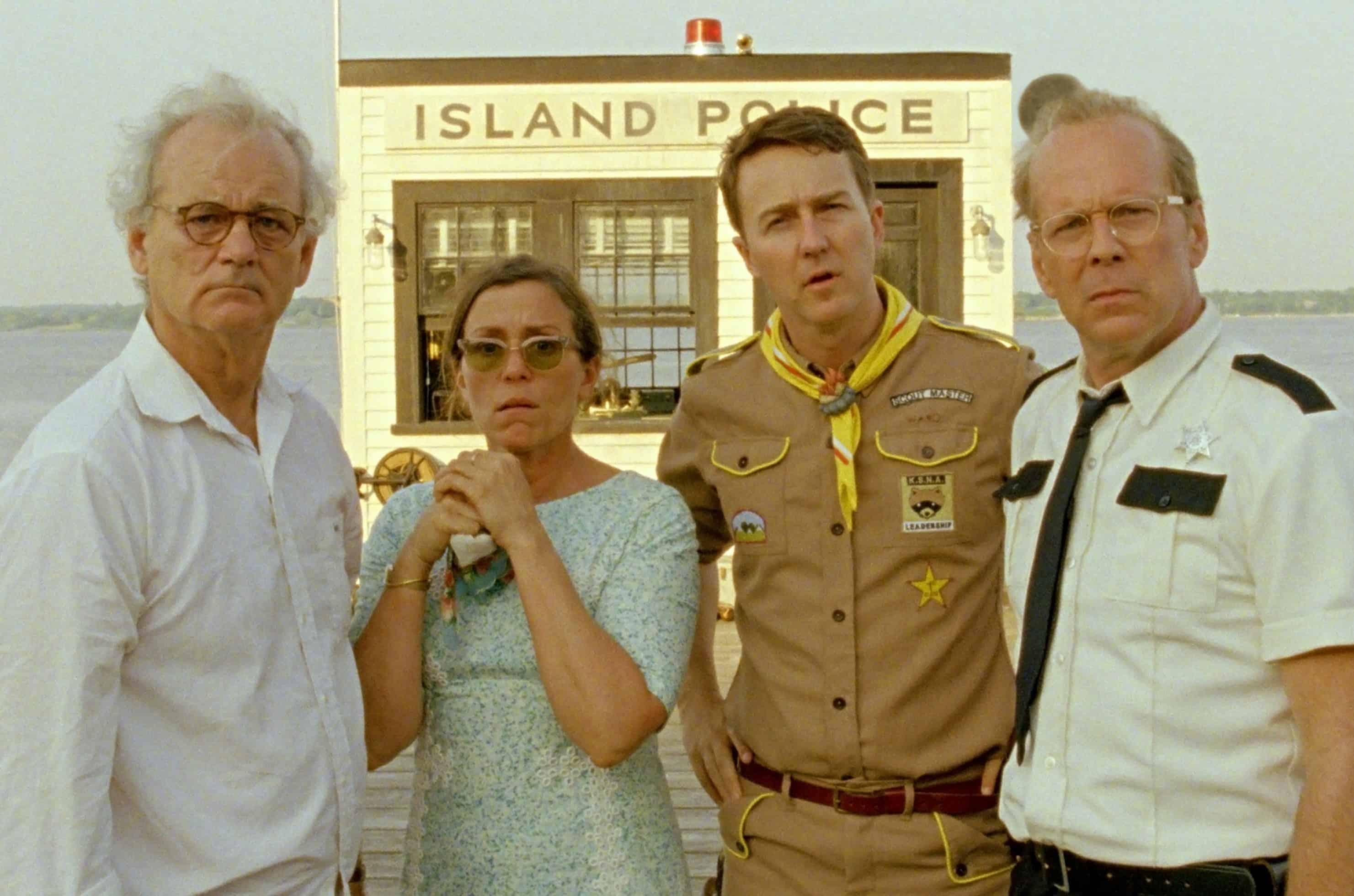
Featured Videos
Official Trailer
Comments
Loading comments...